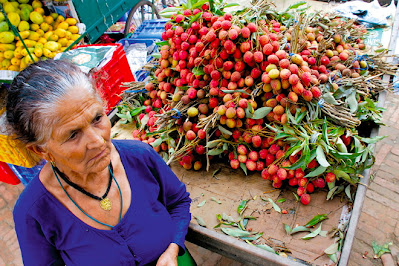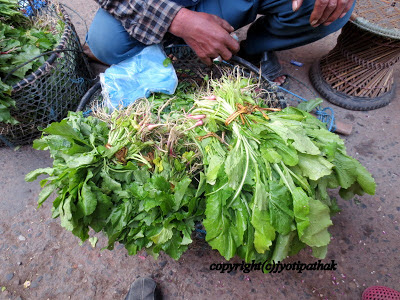I have no words. I once read t
his story in the New Vision, and I heard a call to make a social action documentary, about how the government of Uganda ignores certain diseases, and focuses on diseases that donors say it should focus on. They pour money into TB, AIDS, Malaria, and now on maternal health - and yet being pregnant is not even a disease! It's 100% natural, but (okay, that's for another story) - there are sicknesses that are killing Ugandans, and no one is doing anything about it. Like DMD, duchenne muscular dystrophy, a terrible killer.
 |
It's sad to see a young life wasted,
reduced to waiting for the grim reaper. |
I visited this family in Wakiso district, and spent a day with them. I am hoping to convince a physiotherapist to visit the family and train them on how to care for their sick children, but this case makes me speechless. I do not know if I have the heart to make this film.
Three children have already died in the family. One boy is suffering from advanced stages of the disease. He may go any time soon. The other three boys are still young, but already showing signs of the killer.
 |
| What does the future hold for me? Julius seems to ask. |
It is a very depressing story. Of little boys waiting to day. Of a family living in abject poverty. Of disease and hopelessness. Of a family that has been abandoned by neighbours, relatives and friends because they are thought to be carrying a curse.
I feel helpless.
And I feel gagged.
 |
| It doesn't look good at all, Julius seems to say. |
There is a very bad attitude going round in the media. It has corrupted artists, writers and film makers. They say you should avoid the kind of stories that BBC and CNN tell about Africa. Stories that stereotype Africa as a place of wars, poverty and disease. The Caine Prize was once heavily criticized for picking stories that some say depict Africa in a 'negative' way. Some call it 'poverty porn'. It bowed to that pressure. Sadly.
But it makes me angry. And I want to ask these stupid people who want us not to tell stories of people like Paul Kayonga and is unfortunate family. I want to ask them one question; If we all keep silent, if we only write about the partying in Kampala, and crazy sex in night clubs like in Viva Riva, and how Africa has a lifestyle and atmosphere that is similar to the good life in Europe and America and Asia -- if we do not speak about the poverty, the wars, the diseases like duchenne muscular dystrophy that attacks unfortunately families and pushes them deeper into poverty, is that not escapism?
Who will speak for such people? Who will tell the stories to inspire social action? Shall we not end up like the USA, a capitalist hell where only the rich have a voice? Where only those who have means can be heard?
I think those who do not want to 'stereotype' Africa, and want to only tell stories of the 'good' side of Africa, have lived in Europe and America, or grown up in cities, and are out of touch with reality.
I want to tell this story. I think that portraying people in a positive light does not mean avoiding 'poverty porn'. Instead, it involves painting a picture of how brave such families are. Of how surviving against all odds.
I hope I will be able to tell this story. Please God, give me the strength to tell it.
 |
| All smiles upon getting beans from a good neighbour. Now supper is assured. |
 |
| Mother and her children prepare beans for supper. |
--
--
--
You May Also Like:



.jpg)








Comments
Post a Comment